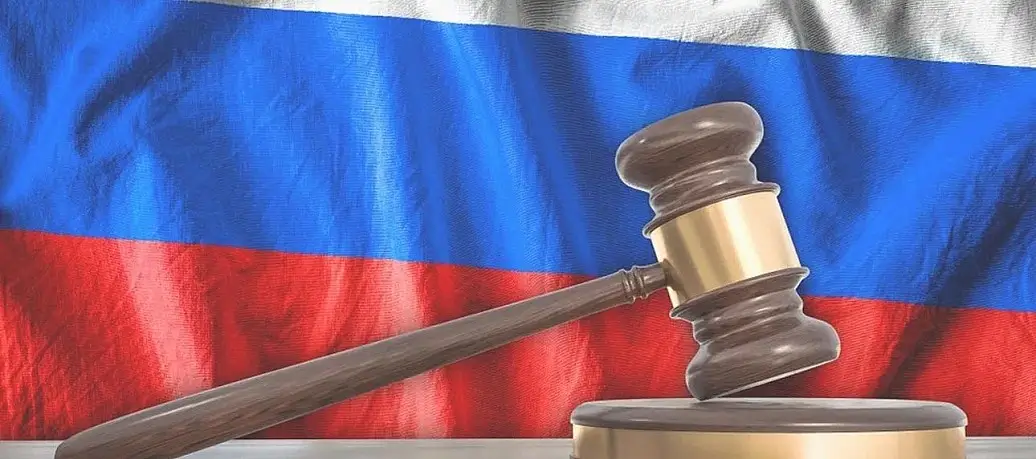New Russian Law Would Classify Bitcoin as Seizable Property
21.05.2025 21:00 1 min. read Alexander Stefanov
As sanctions continue to pressure the Russian economy, the government is moving to tighten control over digital assets like Bitcoin by reclassifying them as property eligible for legal confiscation.
A new legislative proposal from the Ministry of Justice aims to establish a clear legal path for authorities to seize cryptocurrencies involved in criminal or enforcement cases.
The draft law was introduced by Deputy Justice Minister Vadim Fedorov during the St. Petersburg International Legal Forum, where he emphasized the need for updated tools to manage intangible assets.
Unlike physical goods, crypto cannot be locked in a vault or physically stored, Fedorov noted. That distinction has complicated enforcement efforts—something the new framework intends to address by formally recognizing digital currencies as property under Russian law.
The proposed bill sets the groundwork for courts and law enforcement to treat cryptocurrencies in much the same way as cash or real estate, streamlining the process for asset seizure and legal forfeiture. This move signals a broader effort by Russian authorities to align digital asset treatment with traditional legal and financial structures.
While the draft is still pending legislative review, it marks a shift in how Russia may regulate crypto amid ongoing geopolitical and financial tensions.
-
1
U.S. Lawmakers Target El Salvador With Crypto Sanctions Plan
10.07.2025 15:00 2 min. read -
2
Crypto Week Begins: U.S. Congress Advances Key Bills as Trump Pushes for Regulatory Clarity
15.07.2025 7:00 2 min. read -
3
Crypto Tax Policy in Spotlight as House Plans July 16 Hearing
10.07.2025 9:00 2 min. read -
4
Thailand Launches National Crypto Sandbox
17.07.2025 9:03 2 min. read -
5
House Clears Path for Landmark Crypto Bills: Vote Set for Thursday
17.07.2025 9:15 2 min. read
South Korea Urges Asset Managers to Limit Exposure to Crypto Stock Like Coinbase,MicroStrategy
South Korea’s top financial watchdog has issued informal guidance urging local asset managers to scale back their investments in crypto-related stocks, according to a Korean Herald report.
SEC Reverses Bitwise ETF Approval Just Hours After Greenlight
In a surprising move on Tuesday, the U.S. Securities and Exchange Commission (SEC) initially approved Bitwise’s proposal to convert its cryptocurrency index fund into a full-fledged exchange-traded fund (ETF)—only to halt the decision just hours later.
Senate Republicans Unveil Crypto Market Bill to Expand CLARITY Act
Senators Tim Scott, Cynthia Lummis, Bill Hagerty, and Bernie Moreno (R-OH) have released a discussion draft of a new digital asset market structure bill—framed as the Senate counterpart to the CLARITY Act.
Banking Trade Groups Urge OCC to Halt Digital Trust Bank Approvals
Five major banking associations are urging the Office of the Comptroller of the Currency (OCC) to delay approval of new national trust bank charters for digital asset firms, including Ripple, Fidelity Digital Assets, National Digital TR CO, and First National Digital Currency Bank.
-
1
U.S. Lawmakers Target El Salvador With Crypto Sanctions Plan
10.07.2025 15:00 2 min. read -
2
Crypto Week Begins: U.S. Congress Advances Key Bills as Trump Pushes for Regulatory Clarity
15.07.2025 7:00 2 min. read -
3
Crypto Tax Policy in Spotlight as House Plans July 16 Hearing
10.07.2025 9:00 2 min. read -
4
Thailand Launches National Crypto Sandbox
17.07.2025 9:03 2 min. read -
5
House Clears Path for Landmark Crypto Bills: Vote Set for Thursday
17.07.2025 9:15 2 min. read


